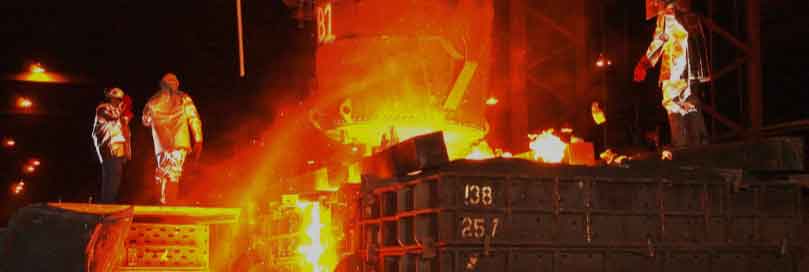
There are several types of steel castings, each with its own characteristics and applications. Here are some common types:
- Carbon Steel Castings: Carbon steel castings are made primarily from iron and carbon. They offer good strength and hardness, as well as excellent machinability. Carbon steel castings are widely used in general engineering applications, such as machinery components, automotive parts, and construction equipment.
- Alloy Steel Castings: Alloy steel castings contain additional alloying elements, such as chromium, nickel, molybdenum, or manganese, in addition to iron and carbon. These alloys enhance specific properties of the steel, such as corrosion resistance, wear resistance, or heat resistance. Alloy steel castings are commonly used in industries such as oil and gas, aerospace, power generation, and automotive, where high strength and specialized properties are required.
- Stainless Steel Castings: Stainless steel castings are corrosion-resistant and have excellent strength and heat resistance. They are widely used in industries that require resistance to rust, oxidation, and chemical corrosion, such as food processing, pharmaceuticals, marine applications, and chemical processing. Stainless steel castings are available in various grades, such as austenitic, ferritic, and martensitic stainless steels.
- Tool Steel Castings: Tool steel castings are specially designed to have high hardness, wear resistance, and toughness. They are commonly used for manufacturing tools and dies, cutting and forming equipment, and components subjected to high pressures and temperatures. Tool steel castings are crucial in industries such as metalworking, injection molding, and die casting.
- Heat-Resistant Steel Castings: Heat-resistant steel castings are designed to maintain their strength and integrity at elevated temperatures. They are commonly used in applications involving high temperatures, such as furnace components, heat treatment equipment, and exhaust systems. Heat-resistant steel castings often contain alloying elements such as chromium, nickel, and molybdenum to improve their resistance to heat and oxidation.
- Wear-Resistant Steel Castings: Wear-resistant steel castings are specifically formulated to withstand abrasion and impact. They are used in applications where the component is subjected to wear and friction, such as mining equipment, crushing and grinding machinery, and wear liners. Wear-resistant steel castings can be alloyed with elements like chromium, manganese, and vanadium to enhance their hardness and wear resistance.
These are just a few examples of the types of steel castings available. Each type has its own unique properties and is suited for specific applications based on the required mechanical properties, corrosion resistance, heat resistance, or wear resistance. The selection of the appropriate type of steel casting depends on factors such as the intended use, operating conditions, and desired performance characteristics.
